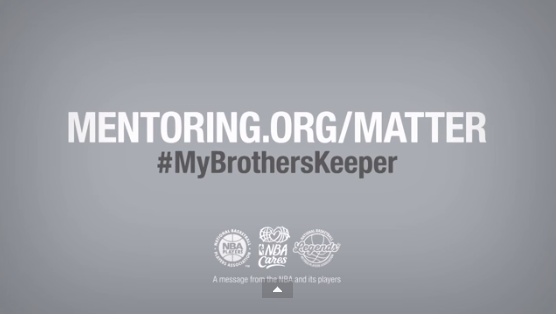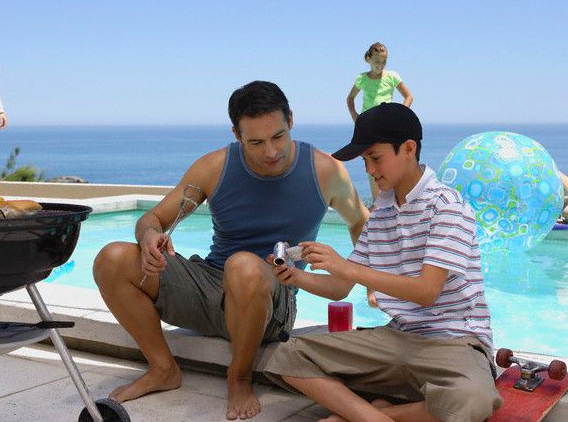Speaking Exchange: Mentoring across continents
 Speaking Exchange: Mentoring across continents
Speaking Exchange: Mentoring across continents
The Speaking Exchange connects Brazilian youth with US seniors, facilitating one-to-one online video chats that help build language skills for foreign students and interpersonal connections for the senior mentors. Could we replicate this kind of mentoring across the US?
By Lisa Suhay, Correspondent / May 19, 2014, The Christian Science Monitor
CNA Language School of Sao Paulo and FCB Marketing in Rio de Janeiro, founders of the program, have found the English language teachers who are patient, kind, enthusiastic, and grateful for the chance to have a chat with someone new.
“What all our students want is to speak English fluently,” says Vanessa Valenca head of the CNA Pedagogical Project in a video sample of the project. She adds, “We’re always asking ourselves, ‘How can we make it more real, more human?’”
The project allows US seniors and Brazilian students to meet via video chat so they can speak face to face.
Seeing the gentle corrections in sentence structure and pronunciation given by the best teachers in the world – senior citizens – made me wish some classroom teachers could be more like them.
Watching the video this morning made me both weep, and wonder.
I cried because it filled my heart, seeing the seniors in the videos embrace the opportunity to mentor a young person.
There were several poignant moments when the mentors in America told the students, “I love you” and told them they were their new grandchildren.
However, my “wonder” was not so much awe, as – how we can do more with this idea in the United States?
“It would be great to have something like the CNA arrangement here in America,” says Diane Quest, communication director for Mentor: The National Mentoring Partnership. “Right now there is one great online mentoring program that we regularly rely on, iMentor out of New York, for structured chat topics on academic achievement and graduation. There is the Experience Corps run by AARP, but that’s not not via video chat.”
Deborah Jaquith, senior communications advisor at AARP Experience Corps, writes in an email exchange about the Experience Corps project, “We also have a new initiative called Mentor Up, which taps youth to help older adults become more tech savvy, as a way to reduce isolation in seniors.”
When I was a teen, there were several clubs and organizations at my school that regularly took students to visit senior care facilities to brighten the days of elders.
However, this exchange program seems much better because the senior citizens involved are not treated as needy, but needed.
Now that I’m a mom of four boys, I look for clubs and organizations that offer that kind of exchange, rather than a volunteer option. I have not really found any in our area.
Also, whenever I try and bring my sons to a senior residential home to meet people, the sad truth is that they are overwhelmed by everything from the smell of disinfectant to the generally depressing atmosphere of the places we have visited.
I tell my kids, “If you don’t like being there for an hour, imagine all the people who live there and how much they need new faces.”
The solution we’ve reached where we live in Norfolk, Va. has been to bring the seniors to the kids in a neutral environment, such as a community center or library, to play chess, eat bagels, and share their general wisdom.
However, one of the barriers we have found to making this work is a lack of mobility for many senior citizens, whether it stems from a mentor’s physical limitation, or a basic lack of transportation around town.
Many seniors we meet either can’t afford to own a car, or have given up their driver’s license due to health issues.
Seeing this CNA video chat system working between Brazil and Chicago (where the video I watched took place) made me think about how we could manage regular video mentor chats within our own American cities.
Why not chat from our local schools and community centers to senior homes around the city and nation?
Many American schools and recreation centers have computer centers with video chat capabilities in order to facilitating online learning.
While many seniors can’t afford computers, perhaps we could seek out senior residential housing facilities with community rooms that have computers and try to set this up within our own cities.
The motto of the Speaking Exchange is, “More than better students. Better people.”
I would like to see that motto applied to mentoring programs across the US.
This is a fine model of how a cultural and educational exchange doesn’t have to be about international borders, but rather about the lines we can erase between generations.









